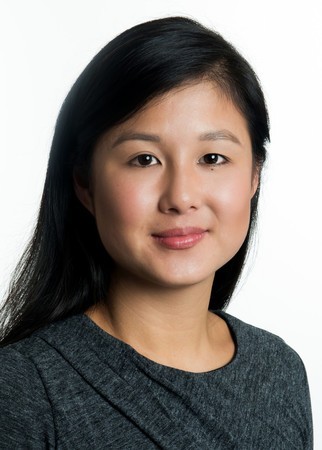Business-Community Partnerships: Re-Thinking Volunteering to Deliver Impact
5 May 2016 at 10:44 am
Increased interest in business-community partnerships bring enormous volunteering potential but it also means a new way of working for the community sector, writes Gail Yap, the national volunteering manager for United Way Australia.
More than ever, social purpose organisations are trying to achieve greater impact with less resources. It seems our sector’s need for volunteers to help deliver on our varied missions is set to increase, yet according to some reports volunteering rates in Australia have begun to decline (ABS 2014).
The momentum towards increased business-community partnerships brings enormous volunteering potential to bridge this gap, especially with the interest in skilled volunteering. Yet, it also means a new way of working for the community sector. Are we ready for this?
Having worked globally with businesses for over 120 years, including some 2.9 million volunteers worldwide (1,300 in Australia) last year, United Way thinks it’s an opportunity for the community sector to thrive. Why?
We’ve learnt it’s possible to better leverage the expertise and infrastructure of business by utilising skilled volunteering to deliver our mission at a lower cost and deliver rich staff engagement opportunities for business.
Globally and here in Australia, United Way has expanded our focus from “traditional” large team volunteering days (which will always have a place) towards “skilled” volunteering for individuals and teams. Volunteers were demanding the change – why paint a fence when they could use their expertise for a more meaningful experience?
By shifting towards skilled volunteering, our network of United Ways in 40 countries has improved efficiency, and that has enabled greater community impact. The projects locally have been varied, from skilled volunteer researchers developing papers that guided elements of strategy, to IT teams developing dashboards, and customer service staff conducting phone surveys to measure the impact of our early childhood work.
But making the transition from traditional to skilled volunteering hasn’t been easy. Many businesses still opt for quantity of staff engagement over quality, viewing it as more bang for their CSR buck. And for social purpose organisations, skilled volunteering takes time to manage, requires the support of other staff and can be difficult to quantify. Reporting on a traditional activity like 10 volunteers packing 500 mailings is easy enough, but what about a skilled volunteer leading an internal evaluation and transition towards best practice supporter recognition?
Volunteers from within business and the broader community have a vast range of skills and experiences to support our community sector, but it seems many social purpose organisations are yet to fully leverage this, often due to lack of capacity to support.
Here are some reflections for those considering the shift.
Want to recruit skilled volunteers to help your organisation?
- Assess your enablers: What do you need in place to achieve your mission? User-friendly IT processes, sales training, policy or induction processes are just a few areas a skilled volunteer may be able to help you with.
- Start small and monitor the process: To ensure a positive experience for all, assess the outputs and outcomes of each volunteering activity. Did the support, length, location and management work for your organisation? What could you improve on for next time?
- Celebrate and share the wins: Consider a follow up case study to thank the volunteer and their company. Be sure to circulate this internally to other teams to encourage them to see the value and get involved.
Is your business keen to deliver real impact for a social purpose organisation and your CSR program through volunteering?
- Create an asset map: Look within your business’ daily activities to identify key functions and skills that could be donated, and share this with your community partners to showcase staff skills. From a half-day in-person social media training to a longer, remote project like reviewing HR policies and procedures, identify staff strengths before contacting the organisation you want to assist.
- Find your perfect match: While there are several online platforms available now to make skilled volunteering matches, there’s still real value in asking your social purpose organisations to identify the key areas they need support with to bring greater efficiency. Do you align? If you’ve got skills, there will be an organisation that needs them!
- Ensure a business “win”: Align volunteering opportunities with staff learning and development plans. Focus on the quality rather than quantity of the staff engagement through volunteering experiences to deliver ROI.
- Measure impact for the organisation: Ensure your CSR program also measures not only outputs but where possible the outcomes of volunteering for the organisation you’re assisting, the volunteers and your own business.
Thinking of volunteering yourself or your team?
- Identify your skills: Make a list of your skills and experience to better understand the areas in which you could help.
- Set your parameters: Would you prefer to advise or be hands-on? Work in the organisation’s office, your office, from home, or somewhere else?
- Take a time check: Be realistic with the time you have available and make this clear from your first enquiry so everyone’s expectations are managed.
- Make contact: Liaise with your CSR/volunteering team, explore one of the online platforms available (like your state’s peak volunteering body or Pro Bono Australia VolunteerMatch) or shortlist community organisations to contact directly.
If you’re a business or individual interested in getting involved in skilled volunteering, United Way would love to hear from you!
About the author: Gail Yap is the national volunteering manager for United Way Australia. Yap began her career in corporate volunteering in 2010, completing a volunteering project to design and deliver a community health awareness initiative after graduating from a Bachelor of Health Science (Honours) from the University of Sydney.








